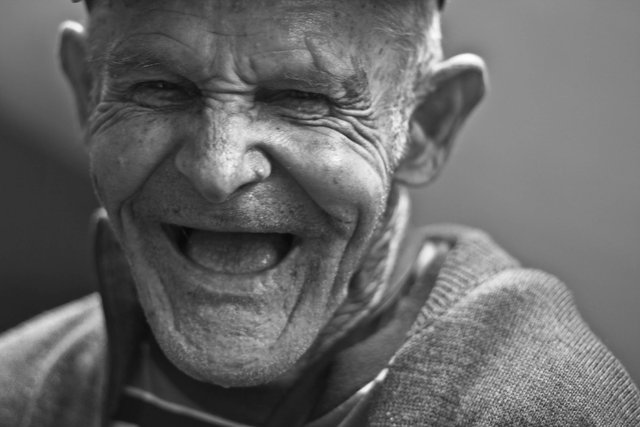Man's Search for Meaning - By Viktor Frankl - My book review
Viktor Frankl survived the Nazi concentration camps during the Second World War. He was a neurologist, psychiatrist and psychotherapist, creator of his own current, logotherapy. After his release, he wrote this book, where beyond telling the terrible events, he approached from psychological phenomena. This is one of my favorite books ever! In this review I share the principles that Viktor Frankl used to deal with his circumstances, and how you can apply them to your life. You will realize some very practical stuff you can implement in your daily life.
Reading time (approx): 7 minutes. ~

WHAT MADE THE DIFFERENCE: THE INTERNAL LIFE
"People of greater sensitivity, accustomed to a rich intellectual experience, suffered a lot (their constitution was weak or sickly), however, the damage inflicted on their intimate being was much less, being able to abstract from the terrible environment and immerse themselves in a world of inner wealth and freedom of spirit ... that is the only way to explain the apparent paradox that, often, the less robust seemed to support life better in the countryside than those with a more robust constitution. "
In the end, what makes the difference are the internal resources we have. Especially during extreme, cruel and terrifying circumstances, such as those experienced in the concentration camps. However, it is common for most people to despise the internal. But why? Seneca said that human beings are really bad at the moment of predicting or choosing what makes us happy. We can adapt it and say that we also sin with the same inaccuracy at the moment of saying what makes a person really strong.
The internal marked the distinction between one type of prisoner and another, however, when we look at our current reality; the amount of resources (time, money, energy) used for the external (improving the physical aspect, for example) is disproportionate when compared to the efforts to improve the inner life. If we like the external, let's enjoy it, there's nothing wrong with that, but let's take care that such enjoyment is not disproportionate. We never know when tragedy will hit us. And believe me, those difficult times will come, starting because if everything goes well, your parents will die first than you. The inner wealth will not prevent you from suffering, but it will prevent you from ending up damaged, as Viktor relates.
THE MEDICINE: NATURE

"As the inner life of the prisoner became deeper, we appreciated the beauty of art and nature, perhaps for the first time or with an unknown emotion ... we even managed to forget the terrible circumstances of our environment ... we were bewitched by the beauty of the nature."
Contemplative practices help to improve our internal life, and also we become capable of appreciating the beauty of life, art and the majesty of nature. This type of contemplative detachments are therapeutic. Hippocrates, known as the father of medicine, used to recommend his patients to take regular walks in nature. He noticed that after a few walks inmersed in nature; people felt better. Even Sigmund Freud mentions in his work Civilization and Its Discontents (1930) that nature and its beauty, while not completely remove pain, but do help to alleviate it. At this point, Viktor Frankl's decision is brilliant. During his stay in the countryside, he took advantage of the moments he could to contemplate nature.
"When my services were not claimed, I took the opportunity to sit and contemplate the blossoming of the green slopes and the distant blue hills of the Bavarian landscape"
THE TECHNIQUE: THE CHANGE OF THOUGHTS
"I noticed that the fact of feeling affected day and night began to depress me, almost exclusively for those trivial matters. I forced myself to think of other things. Suddenly I imagined myself standing on the dais of a well-lit, pleasant and warm conference room. In front of me an attentive audience, sitting in comfortable upholstered chairs. I gave a lecture on the psychology of the concentration camps!"
Another key decision of Viktor Frankl! When he felt affected by life as prisioner (what he calls trivial matters), he forced himself to change his thoughts, replaced them with his passion. This is one of the key principles of psychotherapy, to replace destructive thoughts. When we do it, our interior is strengthened, the mood improves and we are no longer victims of trivialities. In his case, the substitution was not simply to change a negative thought for a positive one or empty statements of the "wiii, I am happy" style. No. The way to make such substitution was much more powerful, because it changed the harmful thoughts for the fantasy of fulfilling his life purpose. But make no mistake, Viktor Frankl was more than a dreamer who admired landscapes, he took action .
"At first I got it by imagining imaginary lectures, until I decided to reconstruct the manuscript lost in the disinfection chamber of Auschwitz and, in shorthand, I scrawled key words on small pieces of paper. Without any doubt, my intense desires to rebuild that book, helped me to overcome the inhuman rigors of life as prisioner... I am convinced that these efforts, at the limit of my resistance, helped me overcome the risk of a cardiovascular collapse."
THE TRAINING: THE SENSE OF HUMOR

"Humor is another weapon of the soul in its struggle for survival, it is known that in human existence, humor provides the necessary distance to overcome any situation, even for a short time. I trained a colleague, a co-worker, to develop his sense of humor. I suggested inventing a funny story every day ..."
The two faces of humor
Viktor considers humor as a weapon. An especially apowerful one when it comes to survival. Such was the importance it gave him, that he dedicated himself to teaching other prisoners strategies so they could develop a sense of humor. He taught them to use a really useful weapon. But it is not a simple "don't worry be happy". No. In those cases the humor is rather counterproductive. For example, if we feel the deep desire to cry and instead of breaking into tears we force ourselves to laugh like maniacs, we are behaving incongruously, deep down, what we are provoking is psychic and emotional tension, which sooner or later will come out to shine in the form of diseases or deterioration. Viktor Frankl, used humor as a strategy of estrangement to survive, not as a mechanism of emotional substitution. A strategy that any of us can learn. Remember that it is a weapon, a weapon that saved his life.
"The efforts to promote a sense of humor and contemplate reality in a humorous light constitute a kind of trick we learned while mastering the art of living, because even in a concentration camp it is possible to practice the art of living, although suffering is omnipresent ."
THE DECISIONS: YOU CAN ALWAYS CHOOSE
In life we will find two types of situations: those that are in our control, and those that are beyond our control. In the middle of that scenario we find ourselves, along with the ability to choose.
"The experiences of life in a concentration camp shows that man maintains his capacity for choice. Some examples are heroic, it also shows how some were able to overcome apathy and irritability. Man can preserve a redoubt of spiritual freedom, of mental independence, even in those cruel states of psychic tension and physical indigence."
How is it possible to overcome such powerful psychological states as apathy and irritability in an environment of deterioration, threatening and hostile? The answer lies in the decisions we make. And although for some it may seem shocking, for others it is the light they need; understanding that even in the most extreme situations, we retain enough mental independence to decide.
But choose what?
Although he does not mention it directly, the key decisions of Viktor Frankl during his stay in the concentration camps were about the things he could control: he decided not to commit suicide, to practice contemplation, to give his help to others, and the most important decision of all, put their theories into practice, beyond paper.
"Some men visited the barracks, comforting the others and offering them their only crust of bread. There were not many, but those few represented an irrefutable proof that man can be taken away from everything except one thing: the last of human liberties - the choice of the personal attitude he must adopt towards destiny to decide his own path."
While some men chose to lie down til die, others devoted themselves to comforting the other prisoners and offering them the little they had. Service elevates the spirit. That is the kind of personal attitude that we can decide at all times, even in the most extreme, cruel and heartbreaking circumstances. But neither is it to minimize or underestimate external circumstances, at no time Viktor proposes to ignore reality and assume the dissociated position of "nothing bothers me, everything is fine". No. Again, the emphasis is on what we decide.
IN CONCLUSION
I share one last quote, my intention with this review has been to serve you, also, with much respect and honor I invite you to make use of these strategies, I am sure that if they were useful to the prisoners in the concentration camps, they will be useful for you, in whatever you are living in these moments.
"Even in those situations (man) he is allowed to keep his courage, his dignity, his generosity. On the other hand, if he plunges into the bitter struggle for survival, he is able to forget his human dignity and behaves little further than an animal would, just as the psychology of internees in a concentration camp reminds us."
In memory of

Thanks for reading.
Landys Jair
The main purpose of the technique as well as Logotherapy, is to surpass ourselves and take responsibility for everything that happens to us in life. Using humor is very important and sometimes necessary to help a person to disengage himself.
How to exactly apply humour? see my other question...
First of all, you have to agree to laugh. Many people think that laughter is not serious, and make them look like crazy. The connection to laughter will also release tears and anger, Laugh in a way that will not break you and your surroundings.
okay, my concern is that the humour is not aimed at others in a cruel way?
my pesky daughter has appropriated my copy of this book.
How exactly would the weapon of humour be used? Do you have any practical examples? My sense of humour can be unkind, surely Victor did not mean that or did he?